Fiat Tipo Wagon VS Toyota RAV4 – Specs, Efficiency & Price Comparison
Which model is the better choice – the Fiat Tipo Wagon or the Toyota RAV4? We compare performance (130 HP vs 306 HP), boot capacity (550 L vs 580 L), efficiency (4.70 L vs 1 L), and of course, the price (21000 £ vs 35100 £).
Find out now which car fits your needs better!
The Fiat Tipo Wagon (Estate) is powered by a Petrol MHEV or Diesel engine and comes with a Automatic or Manuel transmission. In comparison, the Toyota RAV4 (SUV) features a Full Hybrid or Plugin Hybrid engine and a Automatic gearbox.
When it comes to boot capacity, the Fiat Tipo Wagon offers 550 L, while the Toyota RAV4 provides 580 L – depending on what matters most to you. If you’re looking for more power, you’ll need to decide whether the 130 HP of the Fiat Tipo Wagon or the 306 HP of the Toyota RAV4 suits your needs better.
There are also differences in efficiency: 4.70 L vs 1 L. In terms of price, the Fiat Tipo Wagon starts at 21000 £, while the Toyota RAV4 is available from 35100 £.
Compare all the key specs now and find out which model fits your lifestyle best!
Fiat Tipo Wagon
The Fiat Tipo Station Wagon offers a spacious and practical solution for families seeking value without sacrificing comfort. Its sleek design and modern interior features create a pleasant driving experience, complemented by a range of user-friendly technology. On the road, the Tipo Estate provides a smooth drive, making it an ideal companion for both urban and longer journeys.
details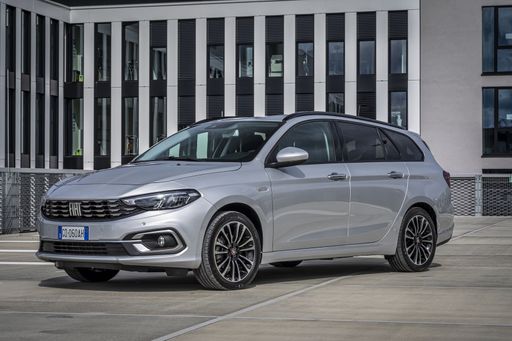 @ media.stellantis.com
@ media.stellantis.com
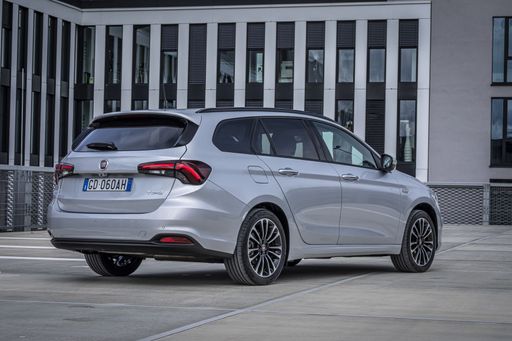 @ media.stellantis.com
@ media.stellantis.com
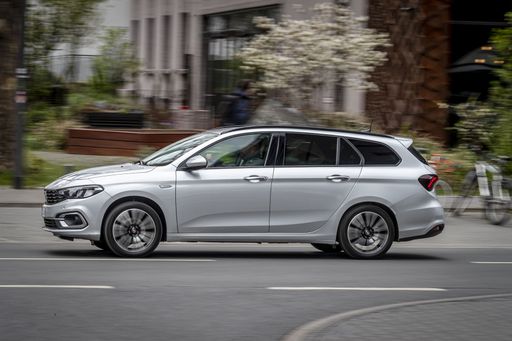 @ media.stellantis.com
@ media.stellantis.com
Toyota RAV4
The Toyota RAV4 stands out in the crowded SUV market with its distinct design, embodying a blend of robustness and style. Its cabin provides a harmonious fusion of comfort and practicality, offering plenty of space for both passengers and luggage. This vehicle is engineered to deliver a smooth driving experience, whether manoeuvring through city streets or exploring winding country roads.
details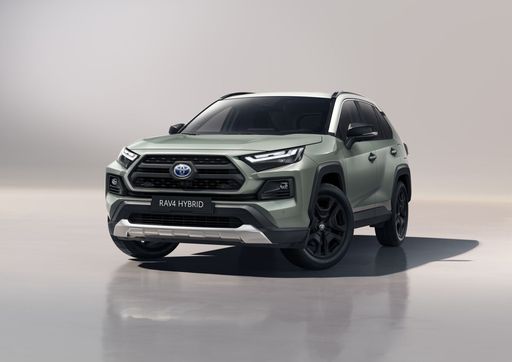 @ Toyota
@ Toyota
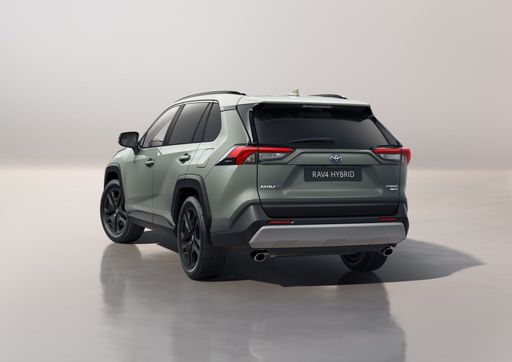 @ Toyota
@ Toyota
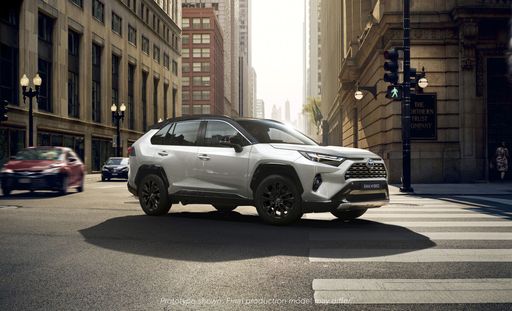 @ Toyota
@ Toyota
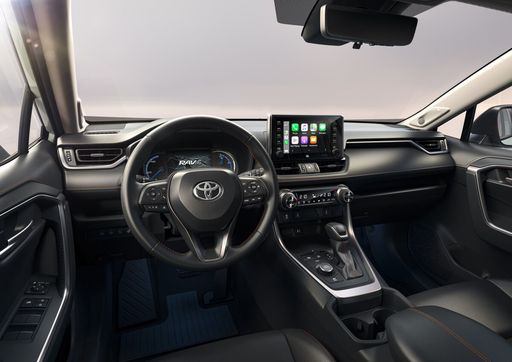 @ Toyota
@ Toyota

|

|
|
|
|
Costs and Consumption |
|
|---|---|
|
Price
21000 - 27000 £
|
Price
35100 - 55700 £
|
|
Consumption L/100km
4.7 - 5.4 L
|
Consumption L/100km
1 - 5.6 L
|
|
Consumption kWh/100km
-
|
Consumption kWh/100km
-
|
|
Electric Range
-
|
Electric Range
75 km
|
|
Battery Capacity
-
|
Battery Capacity
-
|
|
co2
122 - 125 g/km
|
co2
22 - 128 g/km
|
|
Fuel tank capacity
50 L
|
Fuel tank capacity
55 L
|
Dimensions and Body |
|
|---|---|
|
Body Type
Estate
|
Body Type
SUV
|
|
Seats
5
|
Seats
5
|
|
Doors
5
|
Doors
5
|
|
Curb weight
1455 - 1470 kg
|
Curb weight
1745 - 1910 kg
|
|
Trunk capacity
550 L
|
Trunk capacity
520 - 580 L
|
|
Length
4571 mm
|
Length
4600 mm
|
|
Width
1792 mm
|
Width
1855 mm
|
|
Height
1514 mm
|
Height
1685 mm
|
|
Payload
475 kg
|
Payload
390 - 600 kg
|
Engine and Performance |
|
|---|---|
|
Engine Type
Petrol MHEV, Diesel
|
Engine Type
Full Hybrid, Plugin Hybrid
|
|
Transmission
Automatic, Manuel
|
Transmission
Automatic
|
|
Transmission Detail
Dual-Clutch Automatic, Manual Gearbox
|
Transmission Detail
CVT
|
|
Drive Type
Front-Wheel Drive
|
Drive Type
Front-Wheel Drive, All-Wheel Drive
|
|
Power HP
130 HP
|
Power HP
218 - 306 HP
|
|
Acceleration 0-100km/h
9.1 - 10.1 s
|
Acceleration 0-100km/h
6 - 8.4 s
|
|
Max Speed
206 - 207 km/h
|
Max Speed
180 km/h
|
|
Torque
240 - 320 Nm
|
Torque
-
|
|
Number of Cylinders
4
|
Number of Cylinders
4
|
|
Power kW
96 kW
|
Power kW
160 - 225 kW
|
|
Engine capacity
1469 - 1598 cm3
|
Engine capacity
2487 cm3
|
General |
|
|---|---|
|
Model Year
2024
|
Model Year
2020 - 2025
|
|
CO2 Efficiency Class
D
|
CO2 Efficiency Class
D, B
|
|
Brand
Fiat
|
Brand
Toyota
|
Fiat Tipo Wagon
Introduction to the Fiat Tipo Station Wagon
The Fiat Tipo Station Wagon has long been a staple in the automotive world, celebrated for its practical design, spacious interior, and affordability. The 2024 model continues this tradition, offering impressive updates in technology and performance, making it a significant contender in the compact estate car market. Here, we take a closer look at what makes the Fiat Tipo Kombi a standout choice.
Engine and Performance
Under the bonnet, the Fiat Tipo Station Wagon showcases its versatility with a choice of powertrains. Its offerings include a 1.5 GSE Hybrid with a mild-hybrid system that enhances fuel efficiency and provides a responsive driving experience. This engine choice delivers 130 PS and achieves a commendable fuel consumption rate of 5.4 L/100km.
For diesel enthusiasts, the 1.6 MultiJet engine provides a robust performance with the same 130 PS but boasts an even lower fuel consumption of 4.7 L/100km. Both engine variants offer a front-wheel drive system which is complemented by either a dual-clutch automatic transmission or a traditional manual gearbox, ensuring a pleasurable driving experience tailored to individual preferences.
Advanced Technology and Innovations
The 2024 Fiat Tipo Station Wagon is equipped with a suite of modern technologies, enhancing both safety and convenience. The model features an advanced infotainment system that integrates seamlessly with smartphones, offering navigation, media, and communication tools via a sleek and intuitive touchscreen interface.
On the safety front, the Tipo Station Wagon is equipped with various driver assistance systems, including adaptive cruise control and lane-keeping assist, ensuring both comfort and security on the road. These innovations reflect Fiat's commitment to merging safety with cutting-edge technology.
Design and Comfort
From a design perspective, the Fiat Tipo Station Wagon maintains a sleek and modern aesthetic, characterised by clean lines and a distinctive front grille that conveys confidence. The vehicle's dimensions (4571 mm in length, 1792 mm in width, and 1514 mm in height) provide ample space for passengers and gear, while a generous boot offers 550 litres of cargo capacity.
Inside, the Tipo Station Wagon is designed with comfort in mind, accommodating five passengers comfortably. The interior cabin is spacious, with quality materials and ergonomic seating ensuring that long journeys are undertaken in comfort.
Efficiency and Environmental Considerations
Efficiency is at the core of the Fiat Tipo Station Wagons design, as evidenced by its low fuel consumption figures and CO2 emissions ranging between 122 and 125 g/km, securing a CO2 efficiency class of D. This makes the vehicle an environmentally conscious choice without sacrificing performance or convenience.
Conclusion
For those in search of a reliable, spacious, and technologically advanced vehicle, the Fiat Tipo Station Wagon stands out as an excellent option. Its combination of performance, efficiency, and modern technology, all wrapped in a stylish design, ensures that it remains a top choice for 2024 and beyond.
Toyota RAV4
The Toyota RAV4: A Modern Marvel in the SUV Segment
The Toyota RAV4 has long been a staple in the SUV market, renowned for its reliable performance and innovative design. In the latest iterations, Toyota continues to build on this legacy by integrating advanced technology and superior engineering.
Hybrid Excellence: Under the Hood
The latest RAV4 models are equipped with impressive hybrid engines, offering both full-hybrid and plug-in hybrid options. The performance spectrum ranges from 218 to a staggering 306 PS, providing power without compromising efficiency. These engines are paired with a responsive CVT automatic transmission, delivering a smooth driving experience.
The hybrid variants achieve remarkable fuel efficiency, with consumption rates as low as 1.0 to 5.6 litres per 100 kilometres, depending on the model. Additionally, the plug-in hybrid versions boast an impressive electric-only range of up to 75 kilometres.
Performance Meets Practicality
The Toyota RAV4 is not just about power; it also offers practical features that enhance the driving experience. With a top speed of up to 180 km/h and a rapid acceleration capability of 0-100 km/h in just 6 to 8.4 seconds, it combines the thrill of driving with everyday usability.
The spacious interior comfortably seats five, with a generous boot capacity ranging from 520 to 580 litres, making it ideal for family adventures or long road trips.
Innovative Driving Dynamics
One of the RAV4's standout features is its driving dynamics. Available in both front-wheel and all-wheel drive, the all-wheel drive variants, branded as AWD-i, offer enhanced traction and stability, providing peace of mind in various driving conditions.
Furthermore, Toyota has ensured that the RAV4 caters to diverse tastes and preferences, with several trim levels like the Adventure AWD-i, Business Edition, and the sporty GR SPORT AWD-i, offering unique features and styling options.
Eco-Friendly and Cost Effective
Environmental considerations are central to the RAV4 design philosophy. The model range adheres to strict CO2 emission standards, rated between 22 and 128 g/km, placing it in the B to D CO2 efficiency classes.
Moreover, the running costs of the RAV4 reflect its excellent efficiency, with monthly expenses ranging from €1,068 to €1,315, and cost per kilometre between 42.7 and 52.6 cents, making it a sensible choice for eco-conscious drivers.
Conclusion: The RAV4's Unmatched Appeal
Whether you're a city driver or an adventure seeker, the Toyota RAV4 offers a perfect blend of power, efficiency, and practicality. Its state-of-the-art hybrid technology, coupled with its versatile features, truly sets it apart in the competitive SUV market. With the Toyota RAV4, drivers experience the best of both worlds: exceptional performance and eco-friendly innovation.
The prices and data displayed are estimates based on German list prices and may vary by country. This information is not legally binding.
